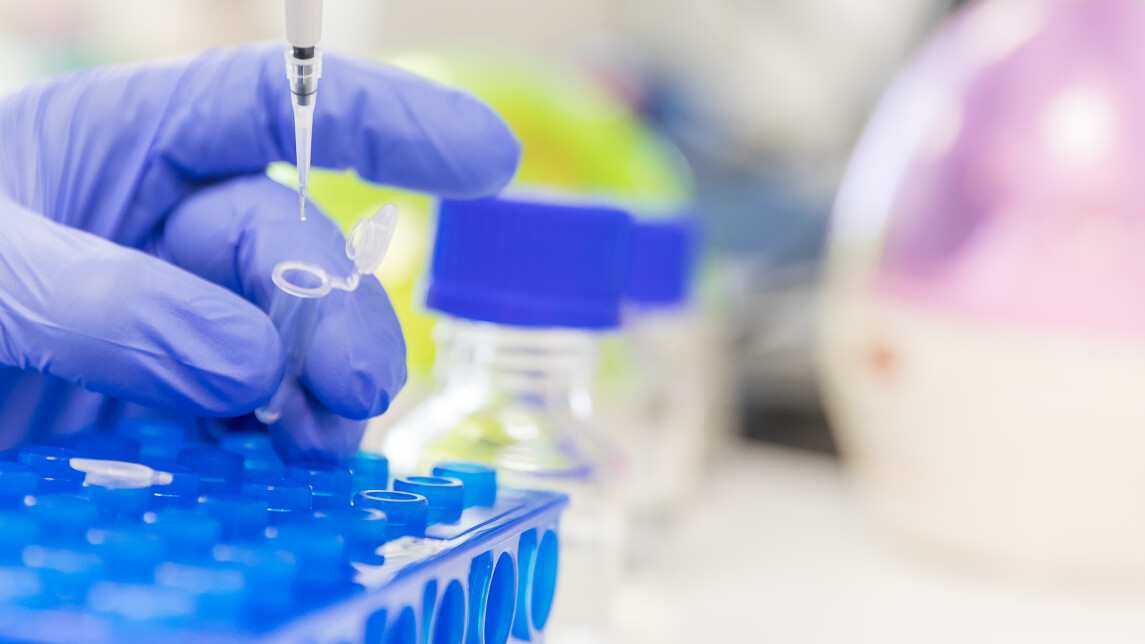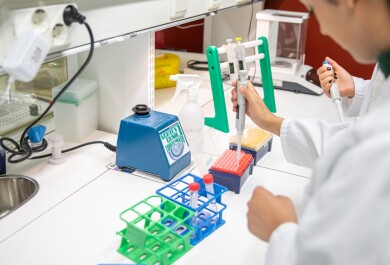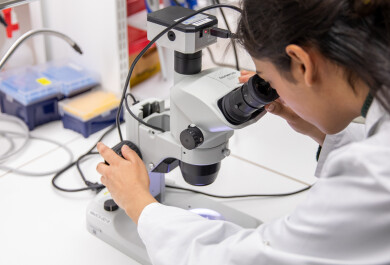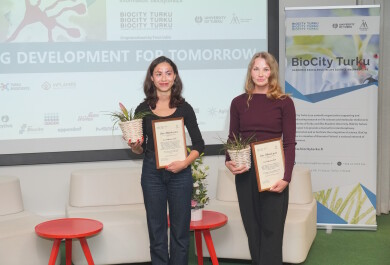Notch proteins are key regulators of growth and differentiation of both normal and cancer cells. Researchers in Turku, Finland, have now demonstrated that the activities of distinct Notch family members are modified differently by phosphorylation. These results can be used in the development of new cancer treatments, especially for hormone-dependent breast cancer.
Breast cancer is the most common type of cancer in women in Finland and other Western countries. Due to the availability of hormonal therapies, the estrogen-responsive breast cancer cases have a relatively good prognosis as compared to other breast cancer subtypes. However, some of them can also develop into an aggressive, metastatic disease, for which new types of therapeutic ideas are needed.
Research groups led by Docent Päivi Koskinen from the University of Turku and Professor Cecilia Sahlgren from Åbo Akademi University have been investigating the interactions of PIM and Notch proteins in cancer cells. The PIM kinases are enzymes that phosphorylate other proteins, whereas Notch proteins are transmembrane receptors, the intracellular part of which can be released and translocated to the nucleus to regulate the expression of Notch target genes.
While overexpression of PIM kinases has been shown to support survival and metastatic motility of cancer cells, the roles of distinct Notch family members have remained less clear in the development of cancer.
– We have now shown that PIM kinases phosphorylate the intracellular domains of both Notch1 and Notch3 proteins. To our surprise, phosphorylation is targeted to distinct sites of these structurally highly similar proteins, tells University Teacher Niina Santio from the University of Turku.
– Phosphorylation stimulates the transcriptional activity of Notch1 but has the opposite effects on Notch3. Yet, both act as oncogenes when they are phosphorylated, which is also surprising, states Postdoctoral Researcher Sebastian Landor from Åbo Akademi University.
In addition to experiments carried out with cultured cells and chick embryo xenografts, patient databases were analysed. This analysis revealed that the overexpression of both PIM1 and Notch3 is connected to poor prognosis in advanced cases of estrogen-responsive breast cancer.
– The clinical data together with our experimental observations suggest that drugs targeting PIM or Notch proteins might be able to provide new treatment options especially for the most difficult cases of breast cancer, says Niina Santio.
The research article is in press in the Journal of Biological Chemistry and is freely accessible online: https://doi.org/10.1016/j.jbc.2021.100593
More information:
Päivi Koskinen, PhD, Docent, Department of Biology, University of Turku
paivi.koskinen@utu.fi, p. +358 29 450 4218
Cecilia Sahlgren, PhD, Prof., Faculty of Science and Engineering, Cell Biology, Åbo Akademi University
Cecilia.sahlgren@utu.fi, p. +358 50 300 9680




